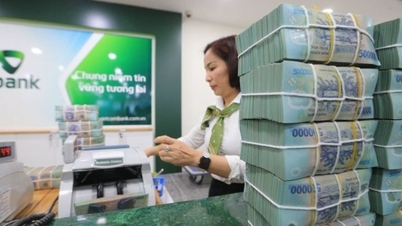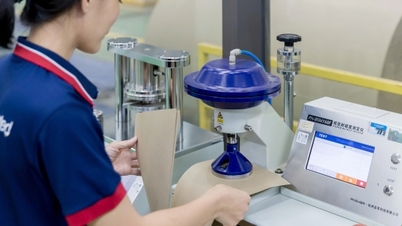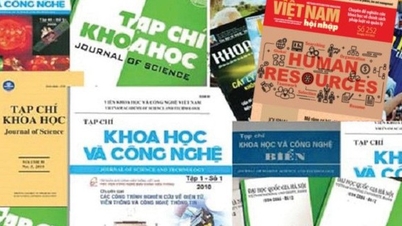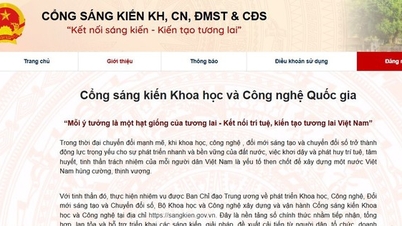Satisfying the demanding Japanese market
Mr. Dang Phuc Nguyen, General Secretary of the Vietnam Fruit and Vegetable Association, said that the Japanese market currently accounts for about 5% of Vietnam's fruit and vegetable export turnover, with a turnover of about 150 million USD. In 2022, Japan imported 165 million USD, accounting for 4% of the fruit and vegetable market share. According to Mr. Nguyen, Japan's fruit and vegetable import standards are very high.
For agricultural, forestry and fishery products, it is necessary to ensure food hygiene and safety standards, animal and plant quarantine, and to be produced and grown according to GAP, HACCP or JAS standards - Japanese agricultural standards, so the export turnover of fruits and vegetables to Japan is still low. Currently, some Vietnamese fruits also occupy a large market share and are increasingly popular in the Japanese market such as dragon fruit, mango, durian, coconut, lychee, longan, banana, of which dragon fruit and banana are favored by consumers, and the turnover has also increased quite a bit. Fruit and vegetable enterprises have begun to get acquainted with the Japanese market.
 |
| Vietnamese bananas are increasingly popular in Japan. |
Speaking to CAND Newspaper reporters on the afternoon of September 22, Mr. Pham Quoc Liem, General Director of U&I Agriculture Joint Stock Company (Unifarm) in Binh Duong, said that currently, this company exports 10 containers of bananas and 1 container of melons to Japan every week. Bananas are the number 1 favorite product in the world market, especially in the Japanese and Korean markets.
According to Mr. Liem, the demand for banana consumption in the world market is increasing. If businesses do well in the market, research consumer trends, invest in production according to the standards and conditions of the import market, Vietnamese bananas will certainly be competitive and can be sold to many different markets. The opportunity for banana export is huge.
According to the Vietnamese Trade Counselor in Japan, many consumption systems in Japan currently want to import bananas from Vietnam to replace Philippine bananas because Japanese consumers think that Vietnamese bananas are delicious. In the first 7 months of 2023, Japan's banana imports from Vietnam reached 7.9 thousand tons, worth 1.05 billion Yen (equivalent to 7.1 million USD), up 62% in volume and 80.2% in value over the same period in 2022. However, the proportion of banana imports from Vietnam only accounts for 1.3% of Japan's total banana imports. Therefore, there is still a lot of room for banana exporting enterprises to expand their market share in Japan.
Deputy Minister of Industry and Trade Do Thang Hai said that 2023 is an important year to celebrate the 50th anniversary of the establishment of diplomatic relations between Vietnam and Japan, and the economic cooperation relationship between Vietnam and Japan has more potential for development than ever. Therefore, the two sides need to further strengthen cooperation to support businesses of both countries to make good use of incentives from the Free Trade Agreement. Currently, Japan is one of Vietnam's leading important partners in many fields.
Trade between Vietnam and Japan has been relatively balanced, sustainable and growing steadily in recent times. Bilateral trade turnover in 2022 reached nearly 50 billion USD, of which Vietnam exported 24.2 billion USD to Japan and imported 23.4 billion USD from Japan. Japan is the 4th largest trading partner, the 3rd largest export partner and the 3rd largest import partner of Vietnam (after China and South Korea).
Improve product quality
Mr. Tran Quang Huy, Director of the Asia-Africa Market Department, Ministry of Industry and Trade, said that Vietnam and Japan have many opportunities for cooperation in the field of trade because the two economies complement each other. Japan is a country with a highly developed economy, possesses the world's leading advanced technology and is one of the leading countries in applying science, technology and developing the digital economy and digital society. Meanwhile, Vietnam has a highly open economy, is maintaining a rapid growth rate, has an abundant young human resource, and has a need to improve competitiveness and industrial production efficiency.
To exploit the Japanese market well, the Vietnam Trade Office in Japan believes that the Government, ministries, sectors and localities need to support enterprises in building cold supply chains such as warehouse and logistics systems to preserve and transport agricultural export products. Support enterprises in improving competitiveness, promoting products, strictly controlling quality and food safety standards, and traceability. Support enterprises in organizing trade promotion delegations to foreign countries to attend international fairs and exhibitions in specialized fields.
Along with that, enterprises also need to ensure product quality; ensure stability in selling prices and supply output because the Japanese market has high standards, is difficult to enter, but if entered, it will be stable and long-term. In particular, the Trade Office noted that Vietnamese export enterprises when doing business with Japanese partners should not just stop at "buying outright - selling off", but should also continue to monitor and control how their products are received by the market, how customers respond, to avoid unnecessary risks (for example, Vietnamese food products are nearing their expiry date but are still sold by importers in the Japanese market..., causing a bad impression on consumers...), thereby ensuring the reputation of their product brands.
According to Vietnamese Ambassador to Japan Pham Quang Hieu, Vietnam-Japan relations are at their best in history, worthy of a deep strategic partnership. In the coming time, we will continue to promote the exploitation of the complementary strengths of the two economies, strengthen economic ties between the two countries, and maintain Japan as Vietnam's leading partner in ODA, investment, trade, etc.
Continue to mobilize Japan to provide new generation ODA to help develop strategic infrastructure, transport infrastructure, digital transformation, climate change response, and healthcare. Take advantage of opportunities that Japanese enterprises are interested in and consider Vietnam an attractive destination in the process of shifting production and diversifying supply chains to promote the wave of Japanese investment in Vietnam, focusing on attracting high-quality investment, technology transfer, and supporting Vietnamese enterprises to participate in the supply chain of Japanese enterprises. Promote cooperation in potential areas such as digital transformation, digital economy, digital society, green transformation, etc.
Source link


![[Photo] Prime Minister Pham Minh Chinh meets with representatives of outstanding teachers](https://vphoto.vietnam.vn/thumb/1200x675/vietnam/resource/IMAGE/2025/11/15/1763215934276_dsc-0578-jpg.webp)

![[Photo] Panorama of the 2025 Community Action Awards Final Round](https://vphoto.vietnam.vn/thumb/1200x675/vietnam/resource/IMAGE/2025/11/15/1763206932975_chi-7868-jpg.webp)


![[Photo] General Secretary To Lam receives Vice President of Luxshare-ICT Group (China)](https://vphoto.vietnam.vn/thumb/1200x675/vietnam/resource/IMAGE/2025/11/15/1763211137119_a1-bnd-7809-8939-jpg.webp)









































































































Comment (0)